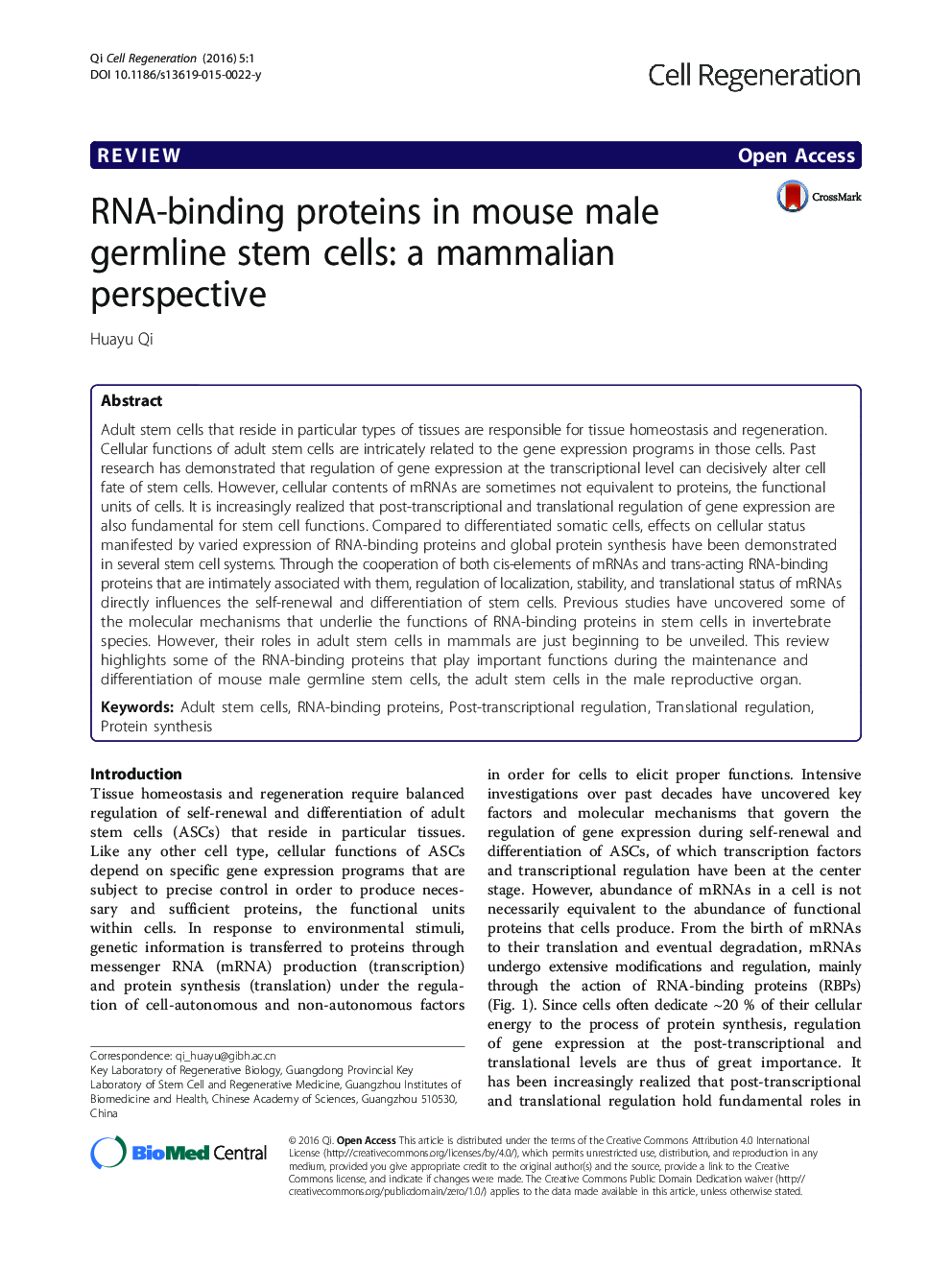| Article ID | Journal | Published Year | Pages | File Type |
|---|---|---|---|---|
| 8920125 | Cell Regeneration | 2016 | 11 Pages |
Abstract
Adult stem cells that reside in particular types of tissues are responsible for tissue homeostasis and regeneration. Cellular functions of adult stem cells are intricately related to the gene expression programs in those cells. Past research has demonstrated that regulation of gene expression at the transcriptional level can decisively alter cell fate of stem cells. However, cellular contents of mRNAs are sometimes not equivalent to proteins, the functional units of cells. It is increasingly realized that post-transcriptional and translational regulation of gene expression are also fundamental for stem cell functions. Compared to differentiated somatic cells, effects on cellular status manifested by varied expression of RNA-binding proteins and global protein synthesis have been demonstrated in several stem cell systems. Through the cooperation of both cis-elements of mRNAs and trans-acting RNA-binding proteins that are intimately associated with them, regulation of localization, stability, and translational status of mRNAs directly influences the self-renewal and differentiation of stem cells. Previous studies have uncovered some of the molecular mechanisms that underlie the functions of RNA-binding proteins in stem cells in invertebrate species. However, their roles in adult stem cells in mammals are just beginning to be unveiled. This review highlights some of the RNA-binding proteins that play important functions during the maintenance and differentiation of mouse male germline stem cells, the adult stem cells in the male reproductive organ.
Keywords
PGCASCSSCRNPRBPTranslational regulationcoding sequenceribonucleoproteinSpermatogonial stem cellPrimordial germ cellAdult stem cellAdult stem cellsProtein synthesisTransposable elementPost-transcriptional regulationUTR یا untranslated regions untranslated regionRNA-binding proteinRNA-binding proteinsCdS
Related Topics
Life Sciences
Biochemistry, Genetics and Molecular Biology
Biochemistry
Authors
Huayu Qi,
